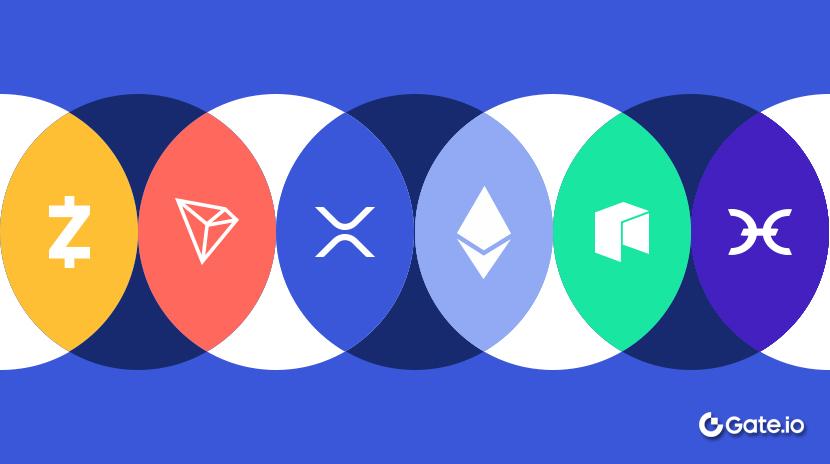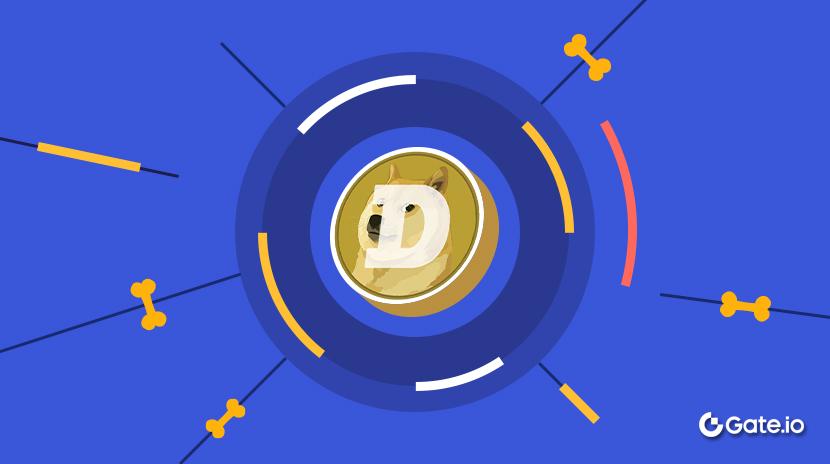coin

What Is Bitcoin?
Bitcoin is a digital currency system that operates without banks or intermediaries, enabling users to transfer value peer-to-peer over the internet. Every transaction is recorded transparently on a public blockchain. Designed to be scarce, verifiable, and censorship-resistant, Bitcoin serves as both a store of value and a global payment network.
The blockchain functions as an append-only ledger of transactions in chronological order. Anyone can run a node to participate in verification. Bitcoin uses the Proof of Work (PoW) consensus mechanism, where miners contribute computational power to validate transactions and earn block rewards.
What Are Bitcoin's (BTC) Current Price, Market Cap, and Circulating Supply?
As of December 25, 2025, referencing CoinMarketCap and Gate (gate.com) market data, Bitcoin has consistently ranked as the top crypto asset by market capitalization. Its price fluctuates in response to macro liquidity, halving cycles, and market risk appetite. Over 90% of Bitcoin’s total supply has been mined; the remainder will be gradually released through future block rewards. Bitcoin’s dominance (often referred to as BTC.D) historically remains high. For accurate real-time prices and market depth, consult Gate’s spot trading page, noting trading volume and volatility across different periods.
Who Created Bitcoin (BTC), and When?
Bitcoin was introduced by the pseudonymous Satoshi Nakamoto, who published its whitepaper in 2008 and launched the genesis block in 2009. The early community collaborated via forums and mailing lists to develop the network, leading to the emergence of mining pools and increased node participation. Scheduled halving events (roughly every four years) gradually reduce new issuance, reinforcing Bitcoin’s scarcity and predictable inflation characteristics.
How Does Bitcoin (BTC) Work?
The Bitcoin network consists of nodes and miners. Nodes receive, validate, and propagate transactions and blocks, ensuring all activity complies with protocol rules. Miners compete for block production through Proof of Work, with difficulty dynamically adjusted to maintain consistent average block times.
Bitcoin’s transaction model is based on UTXO (Unspent Transaction Output). Each transaction consumes existing UTXOs and creates new ones, streamlining verification and enabling parallel processing. The issuance mechanism is governed by block rewards, which decrease at each halving event until the maximum supply of 21 million BTC is reached.
Halving events are triggered by block height and result in reduced rewards. Historically, halvings often coincide with slower supply growth and increased market attention, but price outcomes are influenced by many factors and are not guaranteed.
What Can You Do With Bitcoin (BTC)?
Cross-border transfers: Users can send BTC directly on-chain without traditional banking channels—ideal for scenarios requiring global accessibility.
Store of value: Due to its scarcity and verifiability, Bitcoin is commonly used as a long-term digital asset. Some institutions and individuals include it as a diversifying component in investment portfolios.
Merchant payments: Certain merchants and services accept BTC payments, with settlement possible either on-chain or via second-layer solutions.
Micropayments: The Lightning Network is a channel-based second-layer payment protocol designed for faster and lower-fee microtransactions (note: users should be aware of liquidity management and user experience considerations).
What Are the Main Risks and Regulatory Considerations for Bitcoin (BTC)?
Price volatility: Bitcoin’s price can rise or fall rapidly; leverage and high-frequency trading can magnify account risk.
Regulation and compliance: Legal requirements for buying, holding, tax reporting, and payment usage vary by jurisdiction. Users should understand and comply with local regulations.
Custody and exchange risks: Centralized custody carries platform and account security risks. Enable two-factor authentication (2FA), withdrawal whitelists, anti-phishing codes, diversify storage, and consider partial self-custody.
Private key and mnemonic risks: Your private key controls access to assets; mnemonic phrases are backups. Loss or leakage can result in irreversible asset loss or theft—always back up securely offline, avoid photos/cloud storage.
Network congestion and fees: During periods of high activity, on-chain fees may rise and confirmation times may be delayed—adjust fee settings or select optimal transaction windows as needed.
Fraud and scams: Beware of phishing sites, fake customer support, and high-return schemes. Never disclose account information or verification codes.
What Is the Long-Term Value Proposition of Bitcoin (BTC)?
Scarcity and predictable issuance: The supply cap of 21 million BTC combined with halving events enforces asset scarcity.
Network effects and liquidity: Widespread adoption among holders, merchants, and infrastructure increases liquidity and accessibility, strengthening its role as a value carrier.
Decentralization and censorship resistance: Globally distributed nodes and miners enhance resilience against censorship and single points of failure.
Macro narrative: In some investment strategies, Bitcoin is positioned as a hedge against fiat inflation and geopolitical risks. Long-term value realization depends on adoption rates, regulatory environments, and technological development.
How Can I Buy and Safely Store Bitcoin (BTC) on Gate?
Step 1: Register a Gate account and complete identity verification. Sign up at Gate (gate.com) using your email or phone number; follow KYC instructions to increase limits and access more features.
Step 2: Enable account security. Set up two-factor authentication (2FA), withdrawal whitelists, anti-phishing codes, and regularly review login devices and security logs.
Step 3: Deposit funds. Use the funding page to buy crypto with fiat or deposit stablecoins like USDT; you can also transfer from your personal wallet on-chain. Ensure you select the correct blockchain network—start with a small test transfer.
Step 4: Place a buy order. Search for "BTC" on the spot market, review the order book and market depth, choose market or limit order type, confirm quantity and price before submitting.
Step 5: Withdraw to your own wallet. For self-custody, prepare your wallet address. Hot wallets are convenient but online; cold wallets (such as hardware devices) offer higher security. Test with a small withdrawal before transferring larger amounts.
Step 6: Secure your keys. Write down your mnemonic phrase offline and store it in multiple locations—avoid photos or cloud drives; consider multi-signature setups or sharded backups, regularly rehearse recovery procedures.
Step 7: Ongoing management & risk control. Monitor fees and network congestion, regularly verify wallet balances and transaction history, remain vigilant against fake support staff and phishing links.
How Is Bitcoin (BTC) Different From Ethereum?
Positioning: Bitcoin focuses on secure settlement and value storage; Ethereum is a general-purpose smart contract platform supporting DeFi, NFTs, and diverse application ecosystems.
Consensus mechanism: Bitcoin utilizes Proof of Work (PoW), relying on computational power for security; Ethereum has transitioned to Proof of Stake (PoS), maintained by staking participants known as validators.
Supply & inflation: Bitcoin’s supply is fixed at 21 million coins; Ethereum has no hard cap but employs burn mechanisms that can result in net deflation or low inflation during certain periods.
Functionality & scaling: Bitcoin’s mainnet offers streamlined functionality; second layers like Lightning Network enhance payment scalability. Ethereum’s mainnet supports smart contracts but increasingly relies on Layer-2 solutions for higher throughput and lower fees.
Ecosystem & fees: The two networks differ in ecosystem structure and fee models—users should choose based on their needs for payments, smart contracts, or asset management.
Summary of Bitcoin (BTC)
Bitcoin is a globally accessible value network built on decentralization and scarcity. Its operations rely on Proof of Work consensus and public verification; long-term market capitalization is supported by network effects. Price and circulating supply fluctuate due to halving events and macro factors—investment decisions should emphasize regulatory compliance and private key security. Check live prices on Gate, follow step-by-step buying and self-custody processes to reduce operational risks. When considering allocation between Bitcoin and Ethereum, incorporate their differences alongside your personal needs and risk tolerance to establish disciplined portfolio management strategies.
FAQ
What Is the Difference Between USD and USDT?
USD is the fiat currency issued by the US government, circulating within the banking system. USDT is a blockchain-based stablecoin issued by Tether Ltd., pegged 1:1 to the US dollar. While USD transfers require banks, USDT enables fast trading and transfers on exchanges like Gate with lower costs and higher speed.
What Are Stablecoins & What Are Their Use Cases?
Stablecoins are cryptocurrencies pegged to fiat currencies (such as USD), examples include USDT or USDC. They combine the convenience of crypto with traditional currency stability—suitable for storing funds, facilitating transactions, or mitigating volatility risk. On exchanges like Gate, stablecoins serve as key settlement tools for trading pairs.
What Does the ₮ Symbol Mean & Which Currency Does It Represent?
₮ is the currency symbol for the Mongolian Tögrög (MNT), Mongolia’s official fiat currency. If you see this symbol in crypto transactions, check whether it relates to Mongolian payments; most exchanges primarily use USD or USDT for settlement.
What Is the Core Difference Between Cryptocurrency & Fiat Currency?
Fiat currency is issued and guaranteed by governments based on national credit. Cryptocurrency is maintained by decentralized networks where value is determined through technical consensus and market supply-demand dynamics. Crypto transfers occur without banking intermediaries—offering speed and low cost but with higher volatility—making them suitable for risk-tolerant investors using platforms like Gate.
Why Do Exchanges Primarily Use USDT Instead of Other Stablecoins?
USDT offers the highest market liquidity and broadest adoption among stablecoins—on Gate and other major exchanges it features in the most trading pairs. This enables users to efficiently swap between USDT and various digital assets, enhancing trading convenience while minimizing conversion costs.
Lightweight Glossary for Coin-Related Terms
- Blockchain: A distributed ledger technology secured by cryptography and consensus mechanisms to ensure data integrity.
- Wallet: A tool for storing, sending, and receiving cryptocurrency—contains both public keys and private keys.
- Transaction: The act of transferring cryptocurrency ownership on a blockchain network; requires validation and confirmation.
- Mining: The process whereby miners use computational power to validate transactions and generate new blocks—earning rewards.
- Consensus mechanism: The protocol by which all nodes in a blockchain network agree on ledger status to ensure consistency.
Reference & Further Reading for Unknown Coins
-
Official Website / Whitepaper:
-
Development / Documentation:
-
Authoritative Media / Research:
Related Articles

What Are Altcoins?

What is Blum? All You Need to Know About BLUM in 2025
